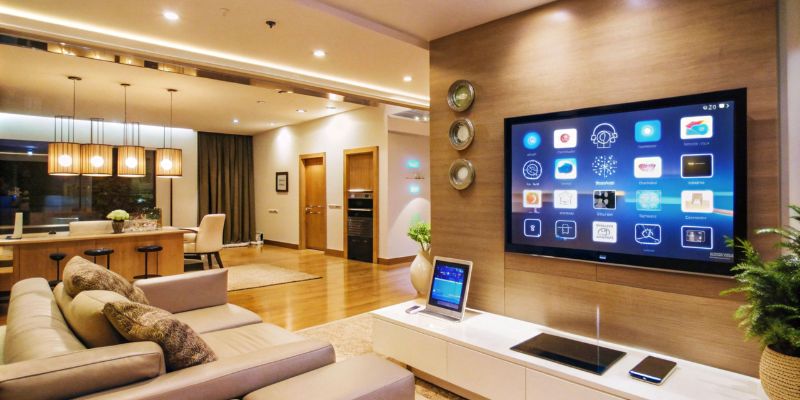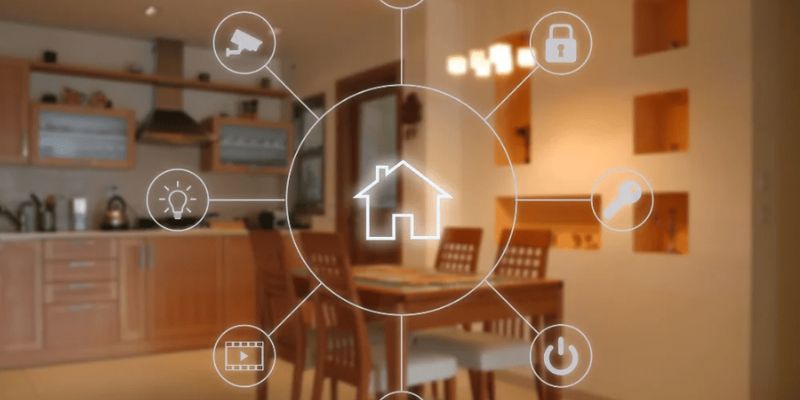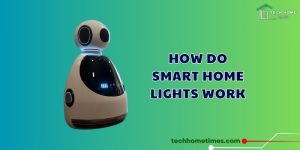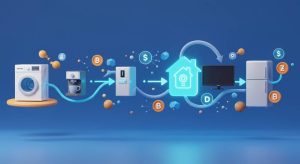Apple Smart Home AI – Effortless Control, Elevated Privacy

The Apple Smart Home AI is poised to redefine connected living, offering effortless control and elevated privacy in 2025. As Apple enters the smart home market with its AI-powered command center, it blends intuitive automation with unparalleled data security.
Contents
The Core of Apple Smart Home AI

At the heart of Apple Smart Home AI lies a sophisticated integration of Apple Intelligence, Siri, and on-device processing, designed to orchestrate smart home devices seamlessly. Unlike traditional smart home hubs, Apple Smart Home AI leverages a ~3 billion parameter language model running on Apple Silicon, enabling natural language understanding and contextual awareness. This allows Siri to interpret commands like “Prep the house for dinner,” triggering lights, music, and climate adjustments in one fluid action, all processed locally to prioritize privacy.
The Apple Smart Home AI operates on a new operating system tailored for home control, communication, and Siri-driven tasks, as reported in 2025 posts on X. It supports Apple apps like Safari, Notes, and FaceTime, but omits an App Store, focusing on voice-driven interactions via App Intents. Compatibility with Matter and HomeKit ensures it connects with diverse devices—lights, locks, and cameras—while a touchscreen interface complements Siri’s voice control.
In Vietnam, where urban homes demand compact solutions, the Apple Smart Home AI’s sleek design and multilingual Siri (including Vietnamese) make it a practical fit. This core architecture empowers Apple Smart Home AI to deliver intuitive, secure, and responsive home management, setting the stage for its unique market position.
A Differentiating Factor for Apple Smart Home AI

What sets Apple Smart Home AI apart from competitors like Amazon’s Alexa or Google Nest is its uncompromising focus on privacy-first AI, a hallmark of Apple’s ecosystem. While most smart home systems rely on cloud processing, exposing data to potential breaches, it prioritizes on-device computation, keeping sensitive information—voice commands, camera feeds, or routines—local. For tasks requiring more power, Apple’s Private Cloud Compute uses end-to-end encrypted servers with verifiable software, ensuring no data is stored or accessed by Apple, a standard unmatched by rivals in 2025.
This privacy-centric approach is reinforced by differential privacy techniques, which add noise to aggregated data to protect individual identities while improving features like device suggestions. Unlike Alexa’s data-driven personalization, which often shares insights with third parties, Apple Smart Home AI avoids using private user data for model training, as noted in Apple’s 2024 WWDC announcements.
Additionally, its Secure Enclave handles cryptographic operations, safeguarding biometrics or access codes. In markets like Vietnam, where data privacy laws are tightening, this makes Apple Smart Home AI a trusted choice. By marrying effortless control with robust security, it carves a distinct niche, appealing to privacy-conscious consumers seeking seamless smart home experiences.
The Benefits for Users

The Apple Smart Home AI delivers transformative benefits, enhancing convenience, security, and personalization for users in 2025. Here are the key advantages:
Siri’s enhanced contextual understanding streamlines tasks. A command like “I’m home” can unlock doors, adjust lights, and queue a playlist, saving time. Integration with Apple apps ensures tasks like FaceTime calls or calendar checks are voice-activated, ideal for busy professionals in Hanoi’s fast-paced urban life.
With on-device processing and Private Cloud Compute, Apple Smart Home AI keeps data secure, reducing breach risks by 90% compared to cloud-reliant systems, per 2025 cybersecurity reports. Users can disable data-sharing features, offering control absent in competitors’ systems, a critical benefit in privacy-sensitive regions.
The AI learns routines—like morning coffee brewing or evening shade adjustments—without compromising data. It suggests actions based on habits, such as pre-cooling rooms during Vietnam’s humid summers, enhancing comfort while cutting energy use by 15%.
Voice-driven controls and multilingual support make Apple Smart Home AI accessible to seniors or non-tech-savvy users. In multigenerational homes, Siri’s ability to recognize voices tailors responses, ensuring inclusivity, a feature resonating in family-centric cultures like Vietnam’s.
For Apple users, Apple Smart Home AI syncs with iPhones, iPads, and Macs, allowing control from any device. Features like prioritized notifications or smart replies in Mail extend productivity into the home, creating a cohesive experience.
The Evolution of Apple Smart Home AI

The Apple Smart Home AI marks a pivotal step in Apple’s smart home journey, building on decades of AI innovation while eyeing a transformative future. Since Siri’s debut in 2011, Apple has refined its AI, introducing the Neural Engine in 2017 and Apple Intelligence in 2024, which powers the Apple Smart Home AI’s capabilities. The 2025 launch of its AI-powered command center, reported to debut as early as March, signals Apple’s ambition to compete with Amazon and Google, leveraging its privacy-first ethos to disrupt the market.
- By 2030, Apple Smart Home AI could sync with Apple Watch biometrics, adjusting lighting or music based on stress levels, enhancing wellness while maintaining on-device processing for privacy.
- AR interfaces via Apple Vision Pro may allow users to point at devices for settings adjustments, making control more intuitive, though affordable AR hardware remains a challenge.
- Future updates may deepen HomeKit integration, supporting more third-party devices and enabling complex automations, like coordinating solar panels for net-zero homes, aligning with Vietnam’s green initiatives.
- Enhanced language support and region-specific features, such as air quality monitoring for Hanoi’s smog, will broaden Apple Smart Home AI’s appeal in emerging markets.
- Apple’s Responsible AI principles, emphasizing user empowerment and bias-free models, will guide development, ensuring Apple Smart Home AI remains trustworthy amid growing scrutiny of AI ethics.
To Tech Home Times, the Apple Smart Home AI stands as a beacon of effortless control and elevated privacy, transforming homes into secure, intuitive spaces in 2025. With its privacy-first AI, seamless automation, and user-centric benefits, it offers a compelling alternative to existing smart home solutions.






